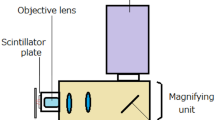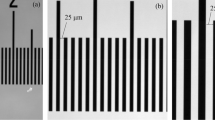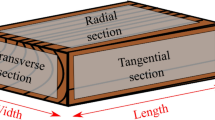Abstract
THE use of Eastman Kodak nuclear track plates, type NTA, in the autoradiographic study of tissue containing thorotrast has been described previously1. Autoradiographs of this type are made as a matter of routine by floating a paraffined tissue section on to a photographic plate. However, during the floating and subsequent contact with wet emulsion, some of the radioactive material is leached out. Moreover, the large opaque clumps of thorium deposits in the tissue make counting of α-tracks in the underlying emulsion difficult.
This is a preview of subscription content, access via your institution
Access options
Subscribe to this journal
Receive 51 print issues and online access
$199.00 per year
only $3.90 per issue
Buy this article
- Purchase on Springer Link
- Instant access to full article PDF
Prices may be subject to local taxes which are calculated during checkout
Similar content being viewed by others
References
Levi, H., Biochim. et Biophys. Acta, 7, 198 (1951).
Gross, J., Bogoroch, R., Nadler, N. J., and Leblond, C. P., Amer. J. Roentgenol., 65, 420 (1951). Leblond, C. P., and Gross, J., Endocrin., 43, 306 (1948).
Bélanger, L. F., Anat. Rec., 107, 149 (1950).
Author information
Authors and Affiliations
Rights and permissions
About this article
Cite this article
LEVI, H. Improved α-Track Autoradiographs of Biological Specimens. Nature 171, 123–124 (1953). https://doi.org/10.1038/171123a0
Issue Date:
DOI: https://doi.org/10.1038/171123a0
This article is cited by
-
Autoradiography with plant tissue
The Botanical Review (1957)
Comments
By submitting a comment you agree to abide by our Terms and Community Guidelines. If you find something abusive or that does not comply with our terms or guidelines please flag it as inappropriate.



